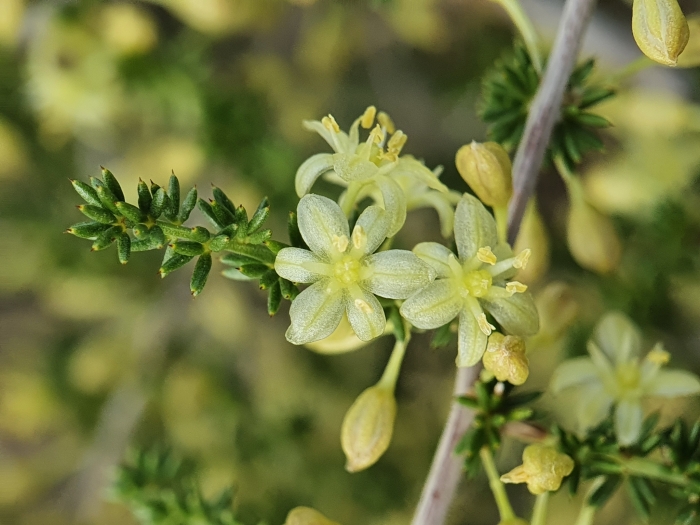Wild Asparagus
(Asparagus acutifolius)
Wild Asparagus (Asparagus acutifolius)
/
/

Mehdi Chetibi
CC BY 4.0
Image By:
Mehdi Chetibi
Recorded By:
Copyright:
CC BY 4.0
Copyright Notice:
Photo by: Mehdi Chetibi | License Type: CC BY 4.0 | License URL: http://creativecommons.org/licenses/by/4.0/ | Rights Holder: Mehdi Chetibi | Publisher: iNaturalist | Date Created: 2022-09-23T17:37:51-07:00 |
























Estimated Native Range
Summary
Asparagus acutifolius, commonly known as wild asparagus, is an evergreen perennial herb native to a variety of habitats in the Mediterranean Basin, including coastal areas, scrublands, and open woodlands. It typically grows 12-28 inches tall and features much-branched feathery foliage that is characteristic of the genus. The plant produces greenish-white to yellowish, bell-shaped flowers during the spring and early summer months. These flowers are modest in size and not particularly showy, but they are followed by red berries that can add visual interest in the landscape.
Wild asparagus is appreciated for its adaptability to dry and sunny conditions, often found in well-drained soils near woods and uncultivated places at altitudes of 0-4,265 feet. It is valued for its young shoots, which are harvested and used in culinary dishes for their delicate flavor. In cultivation, it is sometimes grown in herb gardens or as a part of naturalistic plantings. It requires minimal maintenance once established, tolerating poor soils and drought conditions. While not commonly used for ornamental purposes, it can serve as an interesting textural contrast in mixed borders or as a component of wildlife gardens, attracting birds with its berries. Care should be taken, as the berries are toxic to humans if ingested.CC BY-SA 4.0
Wild asparagus is appreciated for its adaptability to dry and sunny conditions, often found in well-drained soils near woods and uncultivated places at altitudes of 0-4,265 feet. It is valued for its young shoots, which are harvested and used in culinary dishes for their delicate flavor. In cultivation, it is sometimes grown in herb gardens or as a part of naturalistic plantings. It requires minimal maintenance once established, tolerating poor soils and drought conditions. While not commonly used for ornamental purposes, it can serve as an interesting textural contrast in mixed borders or as a component of wildlife gardens, attracting birds with its berries. Care should be taken, as the berries are toxic to humans if ingested.CC BY-SA 4.0
Plant Description
- Plant Type: Shrub, Herb
- Height: 1.5-3 feet
- Width: 1.5-3 feet
- Growth Rate: Moderate
- Flower Color: Green, Yellow
- Flowering Season: Spring, Summer
- Leaf Retention: Evergreen
Growth Requirements
- Sun: Full Sun, Part Shade
- Water: Low, Medium
- Drainage: Medium, Fast
Common Uses
Border Plant, Edible*Disclaimer: Easyscape's listed plant edibility is for informational use. Always verify the safety and proper identification of any plant before consumption., Low Maintenance
Natural Habitat
Coastal areas, scrublands, and open woodlands in the Mediterranean Basin
Other Names
Common Names: Spiny Asparagus, Brusca
Scientific Names: , Asparagus acutifolius, Asparagus acutifolius subsp. aragonensis, Asparagus acutifolius var. achhalii, Asparagus acutifolius var. ambiguus, Asparagus acutifolius var. brachyclados, Asparagus acutifolius var. brevifolius, Asparagus acutifolius var. commutatus, Asparagus acutifolius var. eremicus, Asparagus acutifolius var. gracilis
GBIF Accepted Name: